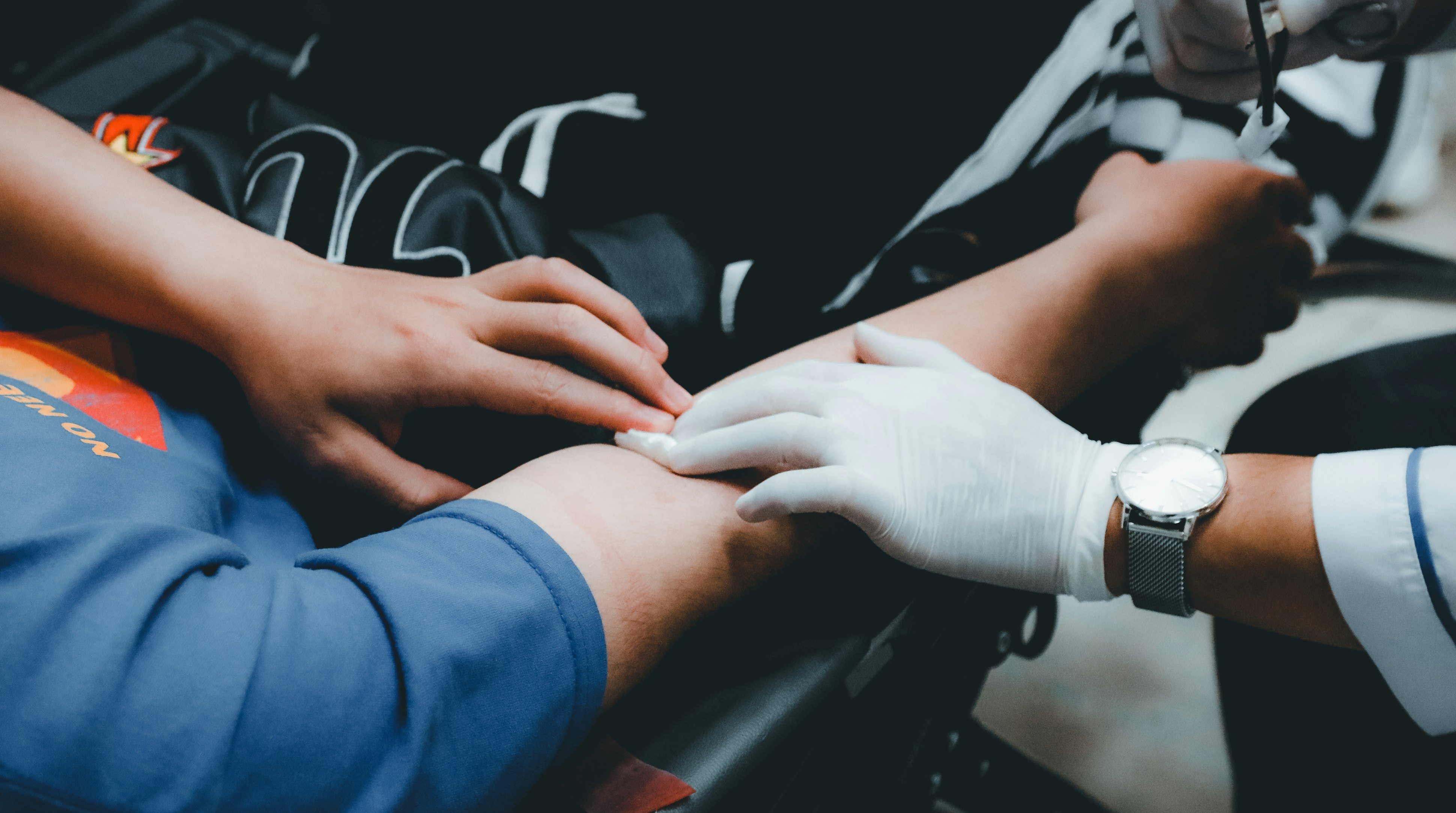Preparing before your blood test
Information about MRI scans can be found further down.
-
Fast for at least 10 hours
Many of our tests require fasting. This means you must not eat or drink anything except water for 10 hours before your blood draw. Black coffee (without milk or sugar) is also allowed. If your appointment is at 8:00 AM, you should begin fasting from 10:00 PM the night before.
👉 Read more about which tests require fasting -
Take the test before 10 AM
Some markers vary throughout the day, so to ensure accurate results, the test should be taken before 10:00 AM. In some cases, you may also need to have been awake for a few hours beforehand. Specific instructions for your test are provided on the test page and when you activate your referral.
👉 See the test page under the "Before your test" tab. -
Rest for 15 minutes before the test
Please rest for 15 minutes at the testing location before your blood draw. Stress or physical activity can affect your test results. -
Bring valid identification
Valid ID is required. You must have a Swedish personal identity number or coordination number. Your referral is sent digitally – there is no need to bring a printed copy.
Medications & supplements
- Take any morning medication after the test.
- Wait two weeks after finishing an antibiotic treatment before getting tested.
- Hormonal medications may affect your results even after the treatment has ended.
- Supplements and vitamins can influence your test results – your values will reflect what is currently in your body.
If you are unsure about how your medication might affect your results, please consult your physician.
Preparing for your MRI scan
-
Metal in your body may affect the scan
You must inform us if you have any metal in your body, such as a pacemaker, insulin pump, implant, clips, or metal fragments. Certain metals may prevent you from undergoing the scan. This information should be provided digitally when activating your referral in our test results service. -
No metal on your body
It is important to remove all jewelry, piercings, hairpins, hearing aids, glasses, watches, and clothing with metal (e.g., zippers or underwire bras). You may need to change into special clothes before the examination. -
The scan is done in a narrow tunnel
The MRI machine is shaped like a tunnel. If you suffer from claustrophobia, please inform the staff beforehand – you may be offered a mild sedative. In some cases, an open MRI may be used. -
Stay still throughout the scan
It's important to lie completely still to ensure clear images. The scan usually takes between 15 and 90 minutes, depending on what is being examined.
Contrast agents may be used
In some cases, a contrast agent is injected into your bloodstream to enhance image quality. This is safe for most people, but please inform us if you have kidney disease, have had a reaction to contrast agents before, or are pregnant.
What to expect during the scan
- You will lie on a table that slides into the MRI machine.
- The machine makes loud noises – you’ll receive ear protection or headphones with music.
- You will be monitored at all times and can speak with the staff via intercom.
If you have any questions or are unsure whether you can undergo the scan, please contact the clinic well in advance of your appointment.
Before your ultrasound examination
An ultrasound examination is a gentle and painless method without X-ray radiation. In order for the results of the examination to be as clear as possible, it is a good idea to prepare yourself properly.
Preparation
-
Bring valid identification
Just as when you are going to give a blood test or have an MRI, you need to be able to identify yourself when you come to the clinic. -
Fasting when examining the upper abdomen
If you are going to have an examination of organs in the upper abdomen – for example the liver, gallbladder, pancreas or spleen, it is important that you fast for 6 hours before the examination.
This means the following:- Do not eat anything for the last 6 hours before your appointment.
- You may drink some water if necessary.
- Take prescribed medications as agreed with your doctor.
👉 The information in your invitation or on the page for the examination here at Testmottagningen.se Before the examination indicates whether your particular examination requires fasting or other special preparations.
How the ultrasound examination is done
- You will lie on a table, usually on your back or sometimes on your side - this depends on the area to be examined.
- A transparent gel is applied to the skin over the area to be examined, this allows the ultrasound signal to be better conducted between the skin and the ultrasound transducer.
- An ultrasound transducer (a small handheld “camera”) is passed over the skin. It sends out high-frequency sound waves towards the organ to be examined.
- These sound waves bounce back to varying degrees from the body’s tissues and create an echo image that the doctor or X-ray nurse can see in real time on a screen.
- Sometimes you may be asked to take a deep breath, hold your breath for a short while, or change position to get even better images.
The ultrasound examination usually takes between 15 and 30 minutes and you can go home immediately afterwards. You can eat and drink as usual again as soon as the examination is finished, unless you have been given other information.






















